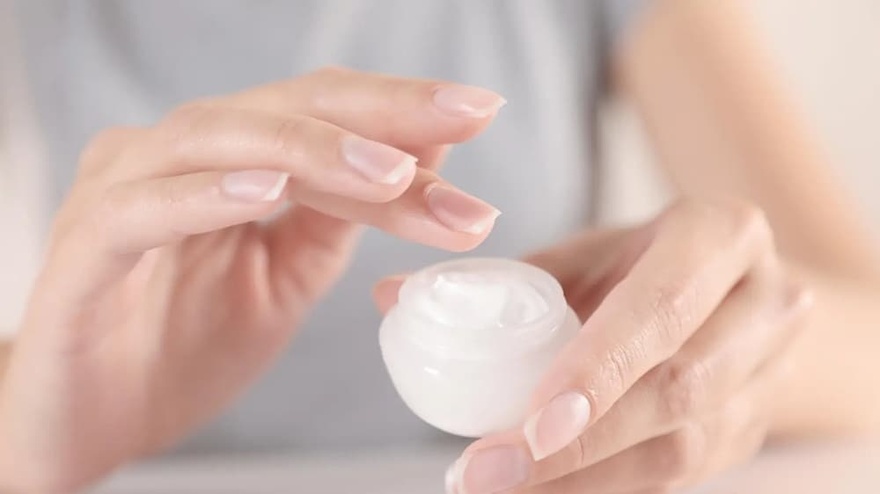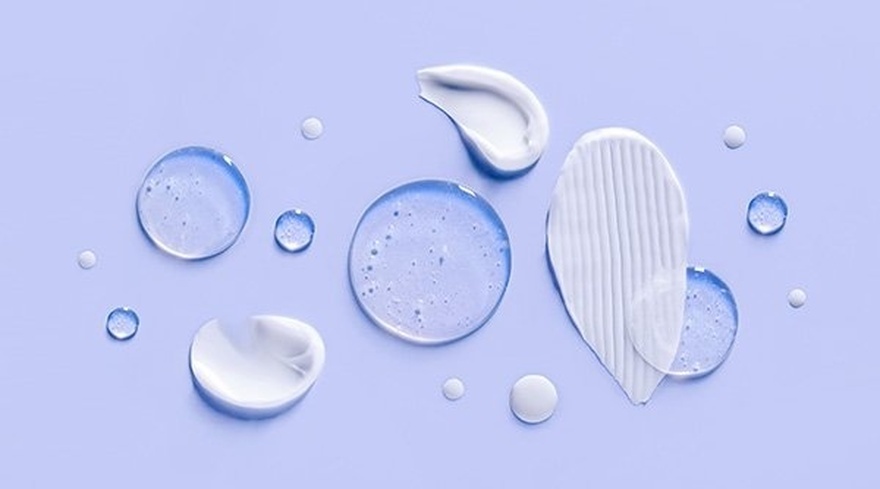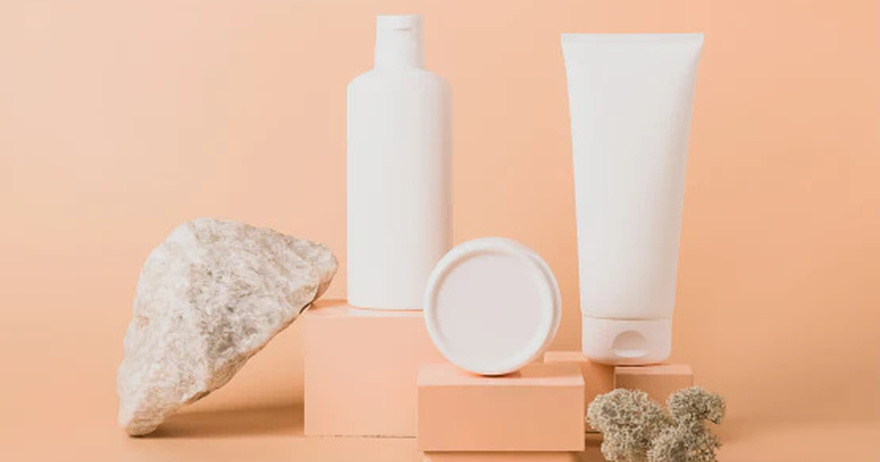When it comes to choosing the right body moisturizer, the sheer variety of options can make the process daunting. Whether you’re looking for something light and non-greasy, thick and luxurious, or something in between, finding the perfect match for your skin type and needs isn’t always straightforward.

You might prefer a thin consistency that absorbs quickly or a thicker one that offers long-lasting hydration, but not all moisturizers perform the same way. The most common types of moisturizers are creams, lotions, and gels, and while they all serve the same basic function—hydrating the skin—there are important distinctions between each. Understanding these differences can make it easier to choose the best option for your skin type, preferences, and even the season. Below, we break down the key features of each type and highlight which one might be right for you.
What Is a Gel Moisturizer?
Gel moisturizers are the lightest of the three, and they typically have a water-based formula, resulting in a thin and almost weightless texture. These products tend to contain fewer oils or fats, focusing instead on hydrating ingredients like hyaluronic acid, glycerin, or aloe vera, which draw water into the skin. Their lightweight nature allows them to absorb quickly, without leaving a greasy or heavy residue behind.
Because gels are so light, they’re especially popular among people with oily or acne-prone skin. These skin types can often struggle with products that feel heavy or greasy, which can clog pores and lead to breakouts. Gel moisturizers provide the hydration these skin types need without exacerbating oil production or causing congestion.
Additionally, gel moisturizers can be very refreshing, making them a popular choice in the summer months when humidity levels rise, and heavier creams can feel suffocating on the skin. These products often come in jars, pumps, or tubes, reflecting their easy-to-apply texture.
Best for:
- Oily and acne-prone skin: Gel moisturizers are lightweight and non-comedogenic, meaning they won’t clog your pores.
- Hot or humid climates: The refreshing, cooling sensation of a gel makes it ideal for warm weather.
- Sensitive skin: The minimalist formulas of many gel moisturizers reduce the risk of irritation.

What Is a Lotion?
Lotions occupy the middle ground between gels and creams. They are typically water-based but contain more emollients (moisturizing agents) and fatty acids than gels, which gives them a thicker, more hydrating feel. The consistency of lotion is still relatively lightweight and easy to spread, making it quick to absorb, but it provides more moisture than a gel would.
Lotions often strike the perfect balance for people with combination skin—where some areas of the face or body are dry while others are oily. The lightweight nature of lotions ensures they won’t overwhelm oily areas, while the added emollients provide enough moisture for drier patches of skin. This is why many everyday body moisturizers fall into this category. They are versatile, absorb quickly, and don’t leave much residue behind, which makes them convenient for daily use.
Lotions are commonly packaged in pumps, reflecting their easy-to-use, fluid consistency. Their fast-absorbing properties make them a great choice for people who are always on the go and don’t want to wait for a thick cream to sink in before getting dressed.
Best for:
- Combination skin: Lotions provide enough moisture for dry areas without making oily parts feel greasy.
- Mildly dry skin: If your skin needs hydration but doesn’t feel tight or flaky, lotion offers the right balance.
- Everyday use: Lotions are easy to apply and absorb quickly, making them ideal for daily use.
What Is a Cream?
If you’re dealing with severely dry skin or conditions like eczema, you’re going to want to reach for a cream. Creams are the thickest and most hydrating of the three options, containing a higher proportion of oils or fats relative to water. This increased oil content helps to lock moisture into the skin and create a protective barrier that prevents further moisture loss. Many creams contain rich emollients like shea butter, glycerin, ceramides, and niacinamide, which work to deeply nourish and repair the skin.
Creams are often packaged in tubs or jars since their thick consistency makes them difficult to pump out. They’re heavier and take longer to absorb than gels or lotions, but they’re unmatched when it comes to providing long-lasting hydration. They’re especially effective in cold, dry weather when the skin tends to lose moisture more quickly.
While creams are essential for people with very dry or sensitive skin, they can feel too heavy for oily or acne-prone skin types, especially during hot or humid weather. However, in colder seasons or for those with mature skin that tends to dry out easily, creams are often the best choice.
Best for:
- Very dry or flaky skin: The rich, emollient texture of creams helps to deeply hydrate and repair dry, cracked skin.
- Cold, dry climates: Creams offer a protective barrier against environmental factors like wind and cold air.
- Eczema or other chronic skin conditions: The thick consistency of creams helps soothe and protect extremely dry or irritated skin.

The Key Differences Between Gel, Lotion, and Cream
Now that you understand the basics of each type of moisturizer, let’s break down the key differences between gels, lotions, and creams:
- Texture and Thickness:
Gel moisturizers are the lightest, with a watery, almost weightless texture. Lotions are thicker than gels but still fluid and easy to apply. Creams are the heaviest and most luxurious, with a rich, buttery texture. - Absorption Time:
Gels absorb the quickest, leaving the skin feeling cool and refreshed. Lotions absorb relatively quickly but leave a slight layer of moisture. Creams take the longest to absorb due to their thick, emollient-rich formula. - Oil Content:
Gels contain the least amount of oil, making them ideal for oily and acne-prone skin. Lotions have more oils or fatty acids than gels but not as much as creams, offering a good middle ground. Creams contain the highest oil content, making them perfect for very dry skin or harsh weather conditions. - Hydration Level:
Gels provide the lightest hydration, while lotions offer more moisture but are still lightweight. Creams provide the most intense hydration and are best for those with severely dry skin.

Which Moisturizer Is Right for You?
Ultimately, the best type of moisturizer for you will depend on your skin type, personal preferences, and even the season. Here are a few final tips to help guide your decision:
- If you have oily or acne-prone skin, opt for a gel moisturizer. It will hydrate your skin without clogging pores or adding unnecessary oil.
- For combination skin or normal skin that needs a balance of hydration without feeling too heavy, lotion is likely your best bet.
- If you have very dry skin, especially in the colder months or in dry climates, go for a rich cream. It will provide the deep hydration your skin needs to stay soft and supple.
- Consider your seasonal needs as well. In the summer, you might prefer a gel or lightweight lotion, while in the winter, a thicker cream can provide better protection against dry air.

Bottom Line
When it comes to choosing the right moisturizer, understanding the differences between cream, lotion, and gel is crucial. Each formula offers unique benefits, and what works best for you will largely depend on your skin type and individual preferences. Remember, skincare is highly personal, and sometimes it takes a bit of experimentation to find your perfect match. And as always, if you have specific skin concerns or conditions, it’s a good idea to consult a dermatologist before trying new products.
With the right moisturizer, you can keep your skin hydrated, healthy, and glowing all year round!






























